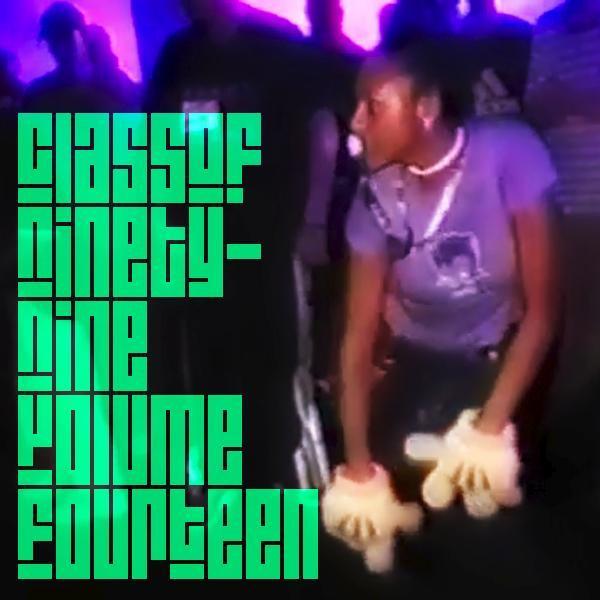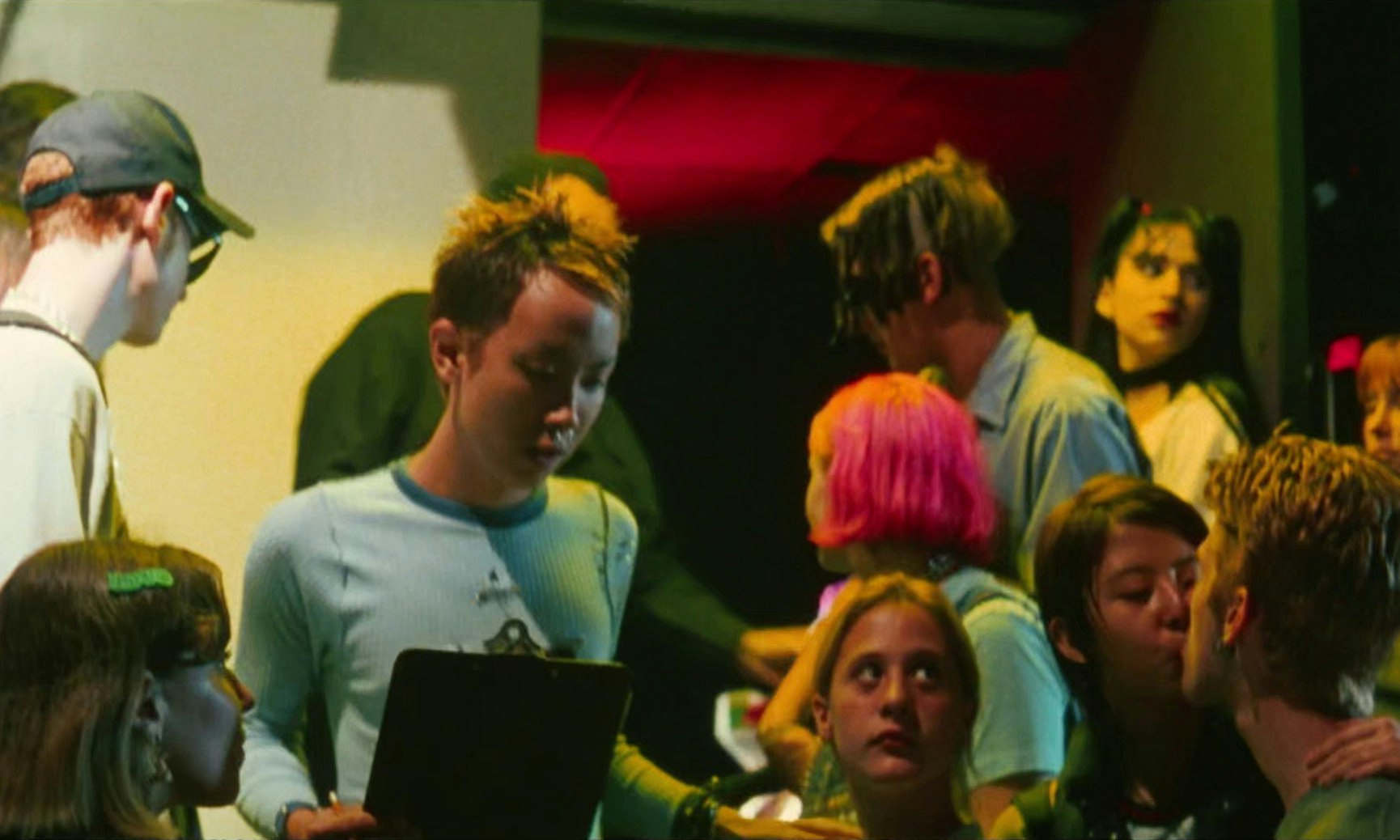Class of ’99, Vol 14
It’s not the notes you play, it’s the notes you don’t play.
—Miles Davis
Not everyone understands house music, and it’s certainly not for everyone. Critics complain that the genre is formulaic, repetitive, and nondescript—admittedly valid criticism. This is because house’s form is defined by the DJ format. A cohesive mix requires a certain amount of uniformity and compatibility between records, so house tracks are almost always organized on 16 bars in a steady, unchanging 4/4 rhythm signature. They tend to be minimal, because fewer notes mean fewer opportunities to clash with adjacent tracks.
I think it’s really important to match records in key, which is a challenge because a record’s pitch changes when you adjust the tempo. Ideally, you want to create some kind of harmonic progression, rather than just mixing a whole set in the same key. But you can’t usually transition from one key to another because two simultaneously-playing records are going to have overlapping key signatures. Sometimes, you can blend in a track that’s a perfect 5th of the last one, or a perfect 4th, and everything will just line up. Or, you can overlay a relative minor or major. Sometimes, you can cut the bass from one record, while the bassline of the next record inverts the root of the first.
I have always committed to diatonic mixing, which most DJ’s didn’t care about and which was prohibitively difficult. As a vinyl DJ in the late 90s, I spent most of my time testing records against each other, and giving up in frustration. Today, we have software that tries to detect key and which allows us to run through a lot of permutations very quickly. But when I listen to old mixtapes from the vinyl era, one DJ that stands out to me as exceptionally committed to harmonic mixing, and that DJ is Miles Maeda.
I always admired Miles Maeda’s technical proficiency and his meticulous attention to detail. My DJ friends all considered him a “DJ’s DJ” because of his dedication to his craft. Luckily, he has remastered and digitized most of his old tapes, most of which are hosted on his website, and which include gems such as Star (’95), Isness (’96), Done and Done (’96), Easy (’97), Painting (’97), Stand Right, Walk Left (’98), Us (’99), and Sunshower (’00).
Maeda is apparently a yogi now, and lives in Japan, but still Deejays as Total M. His 90s mixes are so well-selected, so well arranged, so timeless and perfect, so essential, they belong in The National Archives. This month’s mix is dedicated to my favorite DJ of all time, Miles Maeda.

About the cover
This image comes from an old VHS tape and features a raver chick rocking Minnie Mouse gloves and afro puffs, a Fine shirt, and a pacifier on the end of a lanyard. I don’t know why lanyards became such an essential accessory in the late 90s, but it seemed like everyone in Chicago was wearing one. The most popular lanyards has “WWJD?” printed on them, as in “What Would Jesus Do?”
Track List
Follow these links to read more about the selections:


Sound Design — Bounce to the Beat — 1994
Sound Design was actually Todd Terry. This track, from The Final EP, samples Nautilus by Bob James, from the album One—though I couldn’t point to the exact place it does.


Smokin Beats — Dreams (Vocal Mix) — 1996
This single was the biggest hit for Smokin Beats — so much so that it has its own Wikipedia entry. I’ve heard it samples an old freestyle record, but I don’t know which one. Let me know if you do.


Crustation — Flame (Borderline Insanity Dub) — 1998
Crustation came out at the same time as a number of other female-fronted, crossover trip hop acts—including Hooverphonic, Portishead, Lamb, Olive, and a number of other acts I can’t recall right now. This is a Mood II Swing remix that I had on Mark Farina’s Frisko Disko compilation.


Straight No Chaser — Turn It Around (Red Dog Dub) — 1997
This is a pseudonym for Chicago’s Johnny Fiasco, featuring a guest vocalist credited only as “Michael”. You can pick this up on Discogs for only a few bucks.


Doug Willis — I Got It — 1996
This is the B-side to “Down To The Disco”, a hard-to-find record only released as a promo. Doug Willis is actually Joey Negro, who now goes by Dave Lee. “I Got It” samples “What I Got Is What You Need” by Unique, released as a single on Prelude Records.


Urban Blues Project — Your Heaven (Sol Brothers Club Mix) — 1996
I know this record from a classic Paul Johnson tape called I Need Another Plan. Urban Blues Project also released as Disco Dust, which I spun on an earlier mix.


Mixx Vibes — Body Music — 1994
I actually met Chicago’s Georgie Porgie back when I had my recording contract, though I didn’t realize at the time that he was actually Mixx Vibes (also Turntable Brothers). I probably would have kissed his ass more if I had known. Anyway, this one comes from the second release in the awesome Mixx Vibes series. Vibe Music, later Media Plant, were monumentally important Chicago house labels in the mid-90s.


K La One Project — World — 1997
This is the flip side to the more popular Hammond Tribal, released under the one-off K La One Project. “World” samples Blind Truth’s House classic “Why Can’t We See”, released as a single in the early 90s.


Todd Edwards — You Don't Want to Lose It — 1998
You know, this didn’t occur to me until just now, but both this record and the last one sample “Summer Madness” by Kool And The Gang, from the album Light Of Worlds. This one also samples Andy Gibb, and The Bee Gees (of whom Andy is one).


909 Disco Babes — Going On + On + On — 1995
I first heard this on DJ Pierre’s Global House Culture 3. I wish I knew the sample for this one, but I don’t. Let me know if you do.


Luscious Jackson — Here (Squirmel Mix) — 1995
Luscious Jackson came out on The Beastie Boys’ Grand Royal record label and were promoted as the female Beastie Boys. This was on the Clueless soundtrack, and even had its own video on MTV. You’ll have to get the single if you want this “Squirmel” mix. As child of the 80s, I had to look up “squirmel” to learn this was a 70s fad in the mode of the Chia Pet, or the pet rock.


Kardek — Oh You (Inferno remix by Superfunk) — 1999
Here’s another one from the French Fiat-Lux Racing Team ’99 compilation.


Paul Jacobs — Happy Days (Unreleased Version) — 1997
A.K.A. Soul Grabber. The most popular version of this was called the “Unreleased Version”, which makes no sense because it was clearly released and re-released a bunch of times. This samples “Happy Days” by Northend, which I used to own on the Jumpin’ compilation.


Jack-N-House — A Man With A Horn (Roc + Presta Remix) — 1997
Underground Construction was the most popular Chicago hard house label of its time. I was never really into hard house, but this EP was the best thing they ever put out. It samples a house classic called “The Conversation” by Lil’ Louis, which you can get on his 1989 album From The Mind Of Lil Louis.


Junior Jack — My Feeling (Kick 'n' Deep mix) — 1999
“My Feeling” Samples “Saturday Love” by Cherelle and Alexander O’Neal, released only as a single.


Daft Punk — Da Funk (Ten Minutes Of Funk Mix) — 1996
I made fun of Armand Van Helden in my last entry, but he did produce one thing I liked, which was this remix for Daft Punk’s Da Funk 12 inch. I actually like this quite a lot better than the original, which is more notable for its Spike Jonze-directed music video than for the song itself.


Funk Junkeez — Got Funk (DJ Tonka's Remix) — 1997
Funk Junkeez was a pseudonym for prolific house producer Roger Sanchez. This record samples “Release Yo’ Delf” by Method Man, from the album Tical.


Da Mongoloids — Spark Da Meth (Bangin' Like A Benzi Mix) — 1996
This is Armand Van Helden again—the last time, I promise. “Spark Da Meth” is a Wu-Tang Clan reference to smoking weed. I don’t know why Wu-Tang referred to weed as ‘meth’. It seems bizarre to decide an existing slang term, for a specific drug, is now your slang term for a different drug. In the 90s, I thought Wu-Tang were actually smoking methamphetamine and I had never heard of anyone doing that. But no, they were just smoking pot and calling it ‘meth’. Weird.
This record has nothing to do with Wu-Tang other than the title, but it does contain a sample of “I Used To Love H.E.R.” by Chicago’s own Common, from the album Resurrection, back when he was still known as Common Sense.


Roy Davis, Jr. — Rock Shock (Thomas Bangalter's Start-Stop Mix) — 1998
Here, Chicago’s Roy Davis Jr. teams up with Daft Punk’s Thomas Bangalter for a one-off single on Bangalter’s Roulé Records.
“Rock Shock” samples “I Love The Piano” by Claudio Simonetti, released only as a single.
